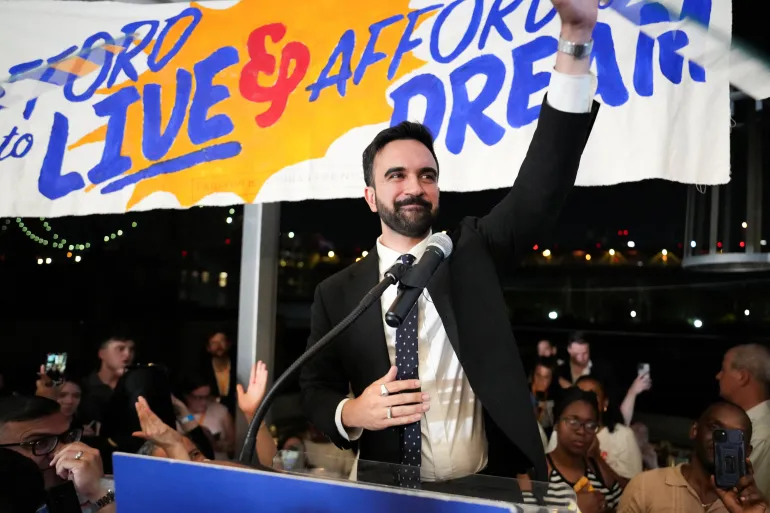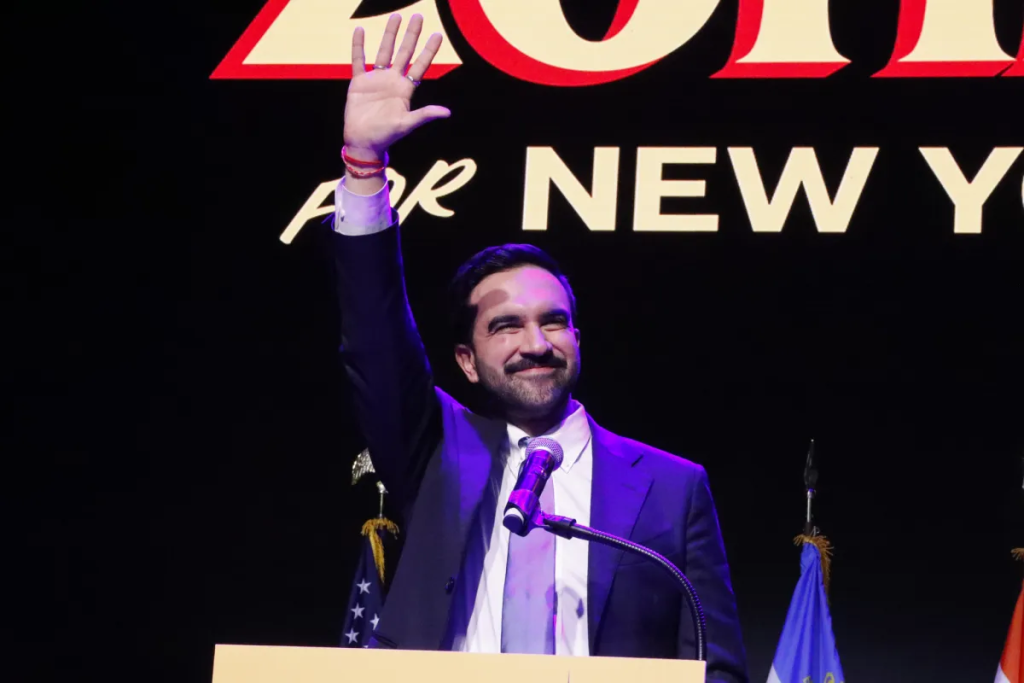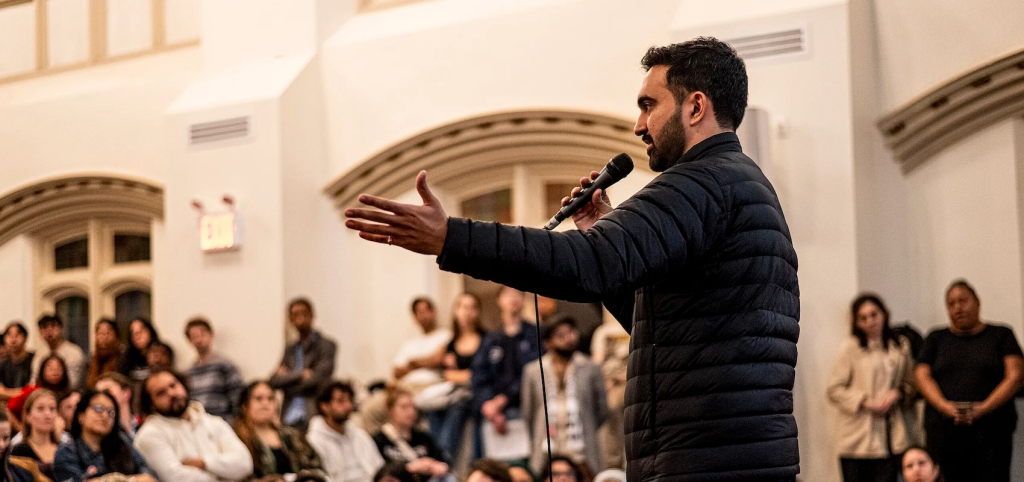After the strangest mayoral election in New York City’s modern history, Zohran Mamdani—a thirty-four-year-old democratic socialist who was virtually unknown at the start of the year—was elected mayor with 50.4 percent of the vote. Turnout surged by 84 percent to well over two million ballots, about 40 percent of the electorate. Mamdani’s supporters boast that he is the first candidate since 1969 to clear one million votes. Less noted is that more than one million New Yorkers voted against him. That split reflects Mamdani’s polarizing nature—and how sharply his vision departs from the city’s historic self-understanding.

At its best, New York is an engine of actualization, forging potential into talent through hard work, the example of other strivers, and an economic system that rewards individual responsibility and delayed gratification. New York has never been an easy place to make it. Its promise is the possibility to become the best version of oneself and be rewarded for it.

Zohran Mamdani’s victory signals a rejection of that ethic. He won by energizing and mobilizing young, educated voters who want the city’s world-class culture and amenities without its hustle culture. Many attended leading institutions of higher education, where they were promised that if they earned a degree—regardless of its market value—a life of professional comfort would follow. Even with six-figure salaries, however, the responsibilities and costs of adulthood in New York proved heavier than they imagined.
A radicalized academy also taught many of them to see capitalism as a central plank of American oppression. They came to see the city’s pressures—high rents, demanding jobs—not as the price of opportunity but as a moral outrage, alongside Israel’s supposed “genocide” in the Gaza War, the second presidency of Donald Trump, corporate exploitation, trans persecution, and more.
For these voters, Mamdani’s platform offered a leftist crusade and immediate salvation from the toils necessary to cover higher costs: frozen rents for stabilized units, fare-free bus transit, and no-cost childcare, starting at six weeks. The vast majority didn’t live in high-crime neighborhoods, making his dangerous, anti-police agenda irrelevant to them.
This is why much of Mamdani’s agenda wasn’t targeted to the neediest. For example, consider that the city already offers half-priced “Fair Fares” for bus and subway riders who prove they earn below a certain household income. Subway and bus transfers have long been free. As MTA Chair and CEO Janno Lieber told the New York Editorial Board recently, New York suffers from affordability issues, but the transit system is not part of the problem. For $2.90, a straphanger can get anywhere in the city.
Mamdani could have promised to expand this program, pairing it with more dedicated bus lanes and improved service to ensure that lower-income New Yorkers could move about town more quickly and comfortably. That would have sharpened the city’s focus on mobility for people who rely on mass transit. It would also have underscored that paying the fare is one of the basic and binding rules of urban life. Instead, Mamdani promised no-fare buses for everyone, regardless of income, eliminating the rule altogether.

Mamdani’s approach thus stems from a sense of entitlement: These services should be available to me, at no cost, because I deserve them, and the rich should pay for them because they have too much money. He said as much after the primary, declaring that billionaires shouldn’t exist. Never mind that the top 1 percent of the city’s income tax filers already pay 48 percent of taxes collected.
On Wednesday morning, as I entered my subway station—in Mamdani’s Assembly district—I watched a young man in his early twenties casually cock back the turnstile and step over it, easily bypassing the MTA’s new turnstile shields. In his hands was a yellow beanie hat embroidered “Zohran for New York City,” with a matching pin affixed to his backpack. One of the lines from Mamdani’s victory speech the night before immediately came to mind: “To every New Yorker in Kensington and Midwood and Hunts Point, know this: this city is your city, and this democracy is yours too.”
To this young fare evader, emblematic of the ascendant Mamdani base, being told the city is his sounds a lot like being told he owns the place—not that he’s part of a society held together by laws, norms, and shared contributions.
Yes, New York’s housing costs have spiraled out of control, but it’s because the city hasn’t built enough homes since the Great Recession. Stricter post-2019 rent regulations have worsened the shortage by keeping units off the market and making rehabs uneconomical. The only tenable way to bring rents down is to build more housing.
New York has survived bad policies and bad mayors. Whether the New York we’ve known can survive a mayor whose core promise is to undo the striving ethos that made it great is a question only the next four years can answer.
Leave a Reply